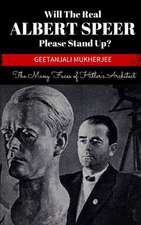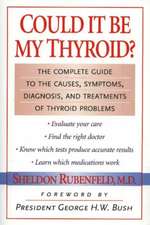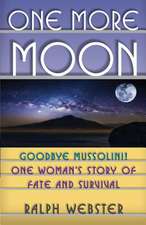Human Subjects Research after the Holocaust
Editat de Sheldon Rubenfeld, Susan Benedicten Limba Engleză Hardback – 17 iul 2014
Human Subjects Research after the Holocaust challenges you to confront the misguided medical ethics of the Third Reich personally, and to apply the lessons learned to contemporary human subjects research. While it is comforting to believe that Nazi physicians, nurses, and bioscientists were either incompetent, mad, or few in number, they were, in fact, the best in the world at the time, and the vast majority participated in the government program of “applied biology.” They were not coerced to behave as they did—they enthusiastically exploited widely accepted eugenic theories to design horrendous medical experiments, gas chambers and euthanasia programs, which ultimately led to mass murder in the concentration camps. Americans provided financial support for their research, modeled their medical education and research after the Germans, and continued to perform unethical human subjects research even after the Nuremberg Doctors’ Trial. The German Medical Association apologized in 2012 for the behavior of its physicians during the Third Reich. By examining the medical crimes of human subjects researchers during the Third Reich, you will naturally examine your own behavior and that of your colleagues, and perhaps ask yourself "If the best physicians and bioscientists of the early 20th century could do evil while believing they were doing good, can I be certain that I will never do the same?"
| Toate formatele și edițiile | Preț | Express |
|---|---|---|
| Paperback (1) | 641.85 lei 6-8 săpt. | |
| Springer International Publishing – 17 sep 2016 | 641.85 lei 6-8 săpt. | |
| Hardback (1) | 648.05 lei 6-8 săpt. | |
| Springer International Publishing – 17 iul 2014 | 648.05 lei 6-8 săpt. |
Preț: 648.05 lei
Preț vechi: 762.42 lei
-15% Nou
Puncte Express: 972
Preț estimativ în valută:
124.02€ • 129.31$ • 103.07£
124.02€ • 129.31$ • 103.07£
Carte tipărită la comandă
Livrare economică 20 martie-03 aprilie
Preluare comenzi: 021 569.72.76
Specificații
ISBN-13: 9783319057019
ISBN-10: 3319057014
Pagini: 324
Ilustrații: XVI, 308 p. 2 illus., 1 illus. in color.
Dimensiuni: 155 x 235 x 20 mm
Greutate: 0.63 kg
Ediția:2014
Editura: Springer International Publishing
Colecția Springer
Locul publicării:Cham, Switzerland
ISBN-10: 3319057014
Pagini: 324
Ilustrații: XVI, 308 p. 2 illus., 1 illus. in color.
Dimensiuni: 155 x 235 x 20 mm
Greutate: 0.63 kg
Ediția:2014
Editura: Springer International Publishing
Colecția Springer
Locul publicării:Cham, Switzerland
Public țintă
ResearchCuprins
Preface.- Acknowledgments.- Foreword.- 1. Introduction: How Did It Go So Wrong?.- 2. Twin Experiments at Auschwitz: A First-Person Account.- 3. Eugenics and Racial Hygiene: Applied Research Strategies before, during, and after National Socialism.- 4. Medical Ethics and Medical Research on Human Beings in National Socialism.- 5. Sulfonamide Experiments on Prisoners in Nazi Concentration Camps: Coherent Scientific Rationality Combined with Complete Disregard of Humanity.- 6. Stages of Transgression: Anatomical Research in National Socialism.- 7. Nurses and Human Subjects Research during the Third Reich and Now.- 8. Involuntary Abortion and Coercive Research on Pregnant Forced Laborers in National Socialism.- 9. Abusive Medical Practices on “Euthanasia” Victims in Austria during and after World War II.- 10. Medical Research and National Socialist Euthanasia: Carl Schneider and the Heidelberg Research Children 1942 until 1945.- 11. Victims of Human Experiments and Coercive Research under National Socialism: Gender and Racial Aspects.- 12. The White Rose: Resisting National Socialism.- 13. The Origins and Impact of the Nuremberg Doctors’ Trial.- 14. In the Shadow of Nuremberg: Unlearned Lessons from the Medical Trial.- 15. The Ethics of Medical Experiments: Have We Learned the Lessons of Tuskegee and the Holocaust?.- 16. Human Subjects Research during and after the Holocaust: Typhus Vaccine Development and the Legacy of Gerhard Rose.- 17. Ethics in Space Medicine: Holocaust Beginnings, the Present, and the Future.- 18. Reproduction Then and Now: Learning from the Past.- 19. Promoting Clinical Research and Avoiding Bad Medicine: A Clinical Research Curriculum.- 20. The Psychophysiology of Attribution: Why Appreciative Respect Can Keep us Safe.- 21. Confronting Medicine during the Nazi Period: Autobiographical Reflections.- 22. Teaching the Holocaust to Medical Students: A Reflection on Pedagogy and Medical Ethics.- 23. No Exceptions, No Excuses: ATestimonial.- Index.
Recenzii
From the book reviews:
“The book makes many valuable and previously little-known contributions to the understanding of relationships between medicine and research during the Nazi period and ethical implications for today. Summing Up: Recommended. Bioethics collections serving upper-division undergraduates and above.” (M. D. Lagerwey, Choice, Vol. 52 (7), March, 2015)
“The book makes many valuable and previously little-known contributions to the understanding of relationships between medicine and research during the Nazi period and ethical implications for today. Summing Up: Recommended. Bioethics collections serving upper-division undergraduates and above.” (M. D. Lagerwey, Choice, Vol. 52 (7), March, 2015)
Textul de pe ultima copertă
“An engaging, compelling and disturbing confrontation with evil …a book that will be transformative in its call for individual and collective moral responsibility." – Michael A. Grodin, M.D., Professor and Director, Project on Medicine and the Holocaust, Elie Wiesel Center for Judaic Studies, Boston University
Human Subjects Research after the Holocaust challenges you to confront the misguided medical ethics of the Third Reich personally, and to apply the lessons learned to contemporary human subjects research. While it is comforting to believe that Nazi physicians, nurses, and bioscientists were either incompetent, mad, or few in number, they were, in fact, the best in the world at the time, and the vast majority participated in the government program of “applied biology.” They were not coerced to behave as they did—they enthusiastically exploited widely accepted eugenic theories to design horrendous medical experiments, gas chambers and euthanasia programs, which ultimately led to mass murder in the concentration camps. Americans provided financial support for their research, modeled their medical education and research after the Germans, and continued to perform unethical human subjects research even after the Nuremberg Doctors’ Trial. The German Medical Association apologized in 2012 for the behavior of its physicians during the Third Reich. By examining the medical crimes of human subjects researchers during the Third Reich, you will naturally examine your own behavior and that of your colleagues, and perhaps ask yourself "If the best physicians and bioscientists of the early 20th century could do evil while believing they were doing good, can I be certain that I will never do the same?"
· Presents relatively unknown aspects of human subjects research during the Third Reich · Reveals surprising relationships between German and American human subjects research
· Dispels myths about Nazi human subjects research
· Compels introspection and self-examination by today's medical and research practitioners
· Addresses contemporary bioethical issues affecting vulnerable populations
· Brings together experts in the history of medicine during the Third Reich and thoughtful new voices
Human Subjects Research after the Holocaust challenges you to confront the misguided medical ethics of the Third Reich personally, and to apply the lessons learned to contemporary human subjects research. While it is comforting to believe that Nazi physicians, nurses, and bioscientists were either incompetent, mad, or few in number, they were, in fact, the best in the world at the time, and the vast majority participated in the government program of “applied biology.” They were not coerced to behave as they did—they enthusiastically exploited widely accepted eugenic theories to design horrendous medical experiments, gas chambers and euthanasia programs, which ultimately led to mass murder in the concentration camps. Americans provided financial support for their research, modeled their medical education and research after the Germans, and continued to perform unethical human subjects research even after the Nuremberg Doctors’ Trial. The German Medical Association apologized in 2012 for the behavior of its physicians during the Third Reich. By examining the medical crimes of human subjects researchers during the Third Reich, you will naturally examine your own behavior and that of your colleagues, and perhaps ask yourself "If the best physicians and bioscientists of the early 20th century could do evil while believing they were doing good, can I be certain that I will never do the same?"
· Presents relatively unknown aspects of human subjects research during the Third Reich · Reveals surprising relationships between German and American human subjects research
· Dispels myths about Nazi human subjects research
· Compels introspection and self-examination by today's medical and research practitioners
· Addresses contemporary bioethical issues affecting vulnerable populations
· Brings together experts in the history of medicine during the Third Reich and thoughtful new voices
Caracteristici
Presents relatively unknown aspects of human subjects research during the Third Reich Reveals surprising relationships between German and American human subjects research Dispels myths about Nazi human subjects research Compels introspection and self-examination by today's medical and research practitioners Addresses contemporary bioethical issues affecting vulnerable populations Brings together experts in the history of medicine during the Third Reich and thoughtful new voices













